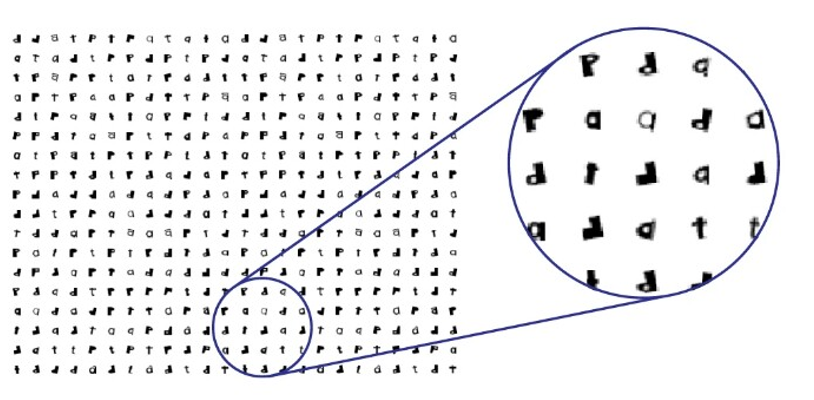By Michael Irving
June 07, 2022
Facebook
Twitter
Flipboard
LinkedIn

An artist's impression of the new optical neural network
chip Photo credit: Ella Maru Studio
VIEW 2 IMAGES
The basis of the new chip is a neural
network, a system modeled on the way the brain processes information. These
networks are made up of nodes that interconnect like neurons, and they even
“learn” in a similar way to organic brains by being trained on sets of data,
such as recognizing objects in images or words in speech. Over time, they
become much better at these tasks.
But rather than electrical signals, the new chip processes
information in the form of light. It uses optical wires as its neurons, stacked
in multiple layers that each specialize in a particular type of classification.
In tests, the team made a chip measuring 9.3 mm2 (0.01
in2) and put it to work categorizing a series of handwritten characters that
resembled letters. After being trained on relevant data sets, the chip was able
to classify the images with 93.8 percent accuracy for sets containing two types
of characters, and 89.8 percent accuracy for four types.
![A sample of the letter-like characters that the new optical neural network chip was tasked with classifying]()
A sample of the letter-like characters that the new optical
neural network chip was tasked with classifying Photo credit: University of
Pennsylvania
Most impressively, the chip was able to categorize each
character within 0.57 nanoseconds, which would allow it to process 1.75 billion
images per second. The team says that this speed comes from the chip’s ability
to process information as light, which gives it several advantages over
existing computer chips.
“Our chip processes information through what we call
‘computation-by-propagation,’ meaning that unlike clock-based systems,
computations occur as light propagates through the chip,” said Firooz
Aflatouni, lead author of the study. “We are also skipping the step of
converting optical signals to electrical signals because our chip can read and
process optical signals directly, and both of these changes make our chip a
significantly faster technology.”
Another advantage is that the information being processed
doesn’t need to be stored, so it also saves time by not having to send data to
memory, and space in not needing a component for memory at all. The team also
says that not storing the data is also more secure, since it prevents any
possible leaks.
The next steps for the team are to begin scaling up the
chip, and adapting the technology to process other types of data.
“What’s really interesting about this technology is that it
can do so much more than classify images,” said Aflatouni. “We already know how
to convert many data types into the electrical domain – images, audio, speech,
and many other data types. Now, we can convert different data types into the
optical domain and have them processed almost instantaneously using this
technology.”
The research was published in the journal Nature.
Source: University of Pennsylvania